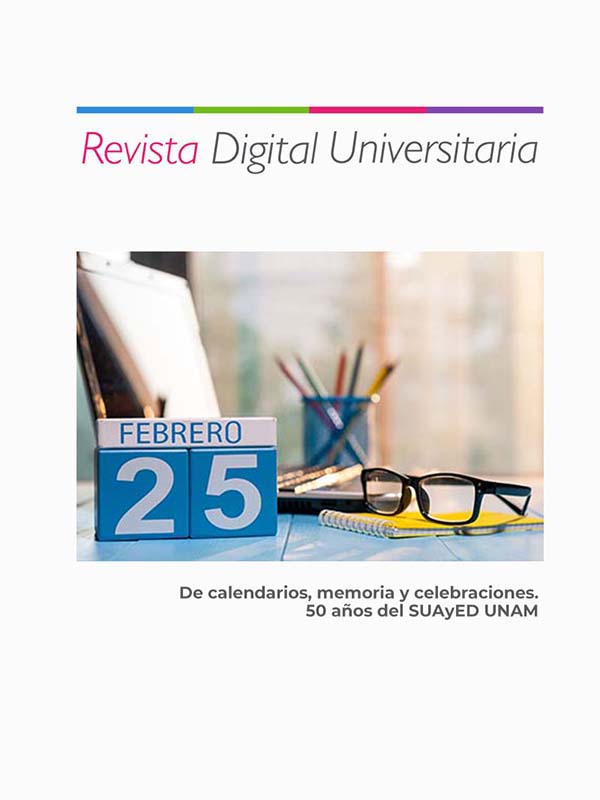Transform the teaching of History through The Game. A theoretical-practical reflection
DOI:
https://doi.org/10.22201/cuaieed.16076079e.2022.23.1.8Keywords:
didactics, strategy, game, Mexico history, teachingAbstract
The importance of using innovative strategies in the teaching of History of Mexico helps the motivation of the student, since it breaks with the traditional style of learning History of Mexico through the summary and underlining, giving a favorable result for the development of the class. Employing different didactic strategies, strengths the importance of the subject in their daily lives, improving the quantitative and qualitative performance of the student and contributes the interest for it so this way the student reaches the learning outlines expected. The present document is intended to provide strategies attached to what the “Reforma Integral de Educación Básica” suggests, which can be employed by the teacher while developing and implementing his class. These strategies are mainly focused on games. That the student learns while playing.
References
Álvarez, P. y López, A. (2016). El teatro como herramienta didáctica en la enseñanza de la Historia de la Educación Contemporánea. Revista Digital de Investigación en Docencia Universitaria, 10 (1), 41-51. https://doi.org/10.19083/ridu.10.459.
Calvas, M. y Espinoza, E. (2017). La enseñanza de la historia a través de historietas. Maestro Y Sociedad, 14(4), 544-555. https://maestroysociedad.uo.edu.cu/index.php/MyS/article/view/3129.
Colón, A.M., Jordán, J. y Agredal, M. (2018). Gamificación en educación: una panorámica sobre el estado de la cuestión. Educ. Pesqui. (44), 1-17. https://doi.org/10.1590/S1678-4634201844173773.
Córdoba, E.F., Lara, F. y García, A. (2017). El juego como estrategia lúdica para la educación inclusiva del buen vivir. ENSAYOS, 32(1), 81-82. https://revista.uclm.es/index.php/ensayos/article/view/1346/pdf.
Conde, S. (2009). “Educar por Competencias. Posibilidades y desafíos” en SEP-DGB-DCA. México: SEP.
Fernández, J., Prieto, E., Alcaraz, V., Sánchez, A. J., y Grimaldi, M. (2018). Aprendizajes significativos mediante la Gamificación a partir del Juego de Rol: “Las Aldeas de la Historia”. Espiral. Cuadernos del Profesorado, 11(22), 69-78. http://repositorio.ual.es/bitstream/handle/10835/5790/1919-5527-1-PB.pdf?sequence=1.
García, E. (2013). Pedagogía constructivista: lo que los maestros necesitan saber. México: Trillas.
Gutiérrez, R. (2013). Introducción a la Didáctica. México: Esfinge. (p. 15)
Gutiérrez, J., Gutiérrez, C. y Gutiérrez, J. (2018) Estrategias metodológicas de enseñanza y aprendizaje con un enfoque lúdico. Revista de Educación y Desarrollo, 45, 37-46. https://www.cucs.udg.mx/revistas/edu_desarrollo/anteriores/45/45_Delgado.pdf.
Mtro. Jorge Trejo. (2020, 4 de mayo). Revolución Mexicana. . YouTube. https://www.youtube.com/watch?v=uxbocnTQuto.
Secretaria de Educación Pública SEP (2007). Guía didáctica de Formación Cívica y Ética para la educación primaria. México.
Secretaría de Educación Pública SEP (2011). Programa de Estudios 2011. México.
Sánchez, B. R. (2016). Planeación didáctica argumentada: corazón de la evaluación docente. México: Trillas.
Universidad Estatal a distancia. (2013). ¿Qué son las estrategias didácticas? https://www.uned.ac.cr/academica/images/ceced/docs/Estaticos/contenidos_curso_2013.pdf.
Published
Issue
Section
License

This work is licensed under a Creative Commons Attribution-NonCommercial-ShareAlike 4.0 International License.

Revista Digital Universitaria es editada por la Universidad Nacional Autónoma de México se distribuye bajo una Licencia Creative Commons Atribución-NoComercial 4.0 Internacional. Basada en una obra en http://revista.unam.mx/.










